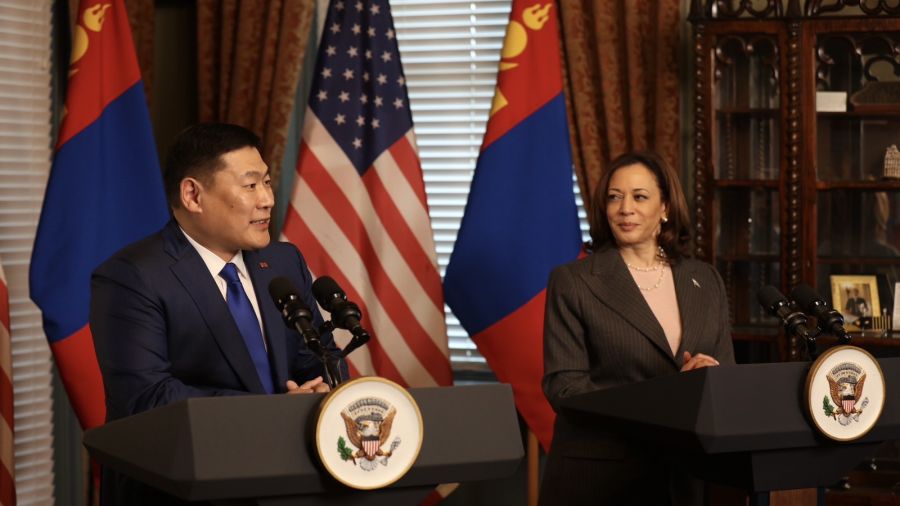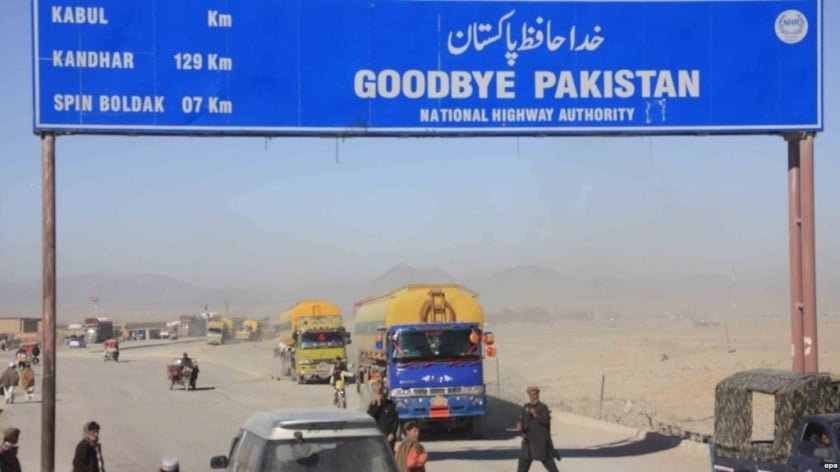A Triumph of Materialistic Interest: The Mongolian Prime Minister Visits the United States
Mongolian Prime Minister Luvsannamsrain Oyun- Erdene visited the United States on the invitation of US Vice President Kamala Harris from August 2–6, 2023.
The Mongolian Prime Minister met with numerous members of the American political establishment during his tour, in addition to the leaders of numerous significant businesses and technology giants. In particular, aside from the Vice President of the United States Oyun-Erdene met with the Secretary of State, the Secretary of Commerce, the Secretary of Transportation, the Secretary of Defense, NASA leadership, and officials from firms like Google and Mitre.
Following the visit of Mongolian Prime Minister to the United States, a number of bilateral agreements and documents were signed, including a new plan for the growth of economic cooperation with the “third neighbor” and an air transport agreement.
Such trips to the United States by representatives of nations with historically cordial and good-neighborly ties to Russia are frequently interpreted as a sign that those relationships are deteriorating.
A closer examination of the visit’s contents, however, reveals that despite the vibrant facade for the trip and its generally positive outcome, the political and ideological ties between Ulaanbaatar and Washington have deteriorated.
First of all, it should be noted that the political-ideological rhetoric in the official statements of high-ranking Mongolian representatives about the visit has subsided. Whereas previously any bilateral summit meeting had to be accompanied by vivid declarations of the two countries’ commitment to democratic values and ideological closeness, this time all protocol features of relations with the US are now limited to the term “Important Third Neighbor,” which has recently been applied to nearly all major states with which Mongolia does not have a direct border. However, despite the silence of the Mongolian side on “democratic solidarity,” such meanings still seeped into the language of US “colleagues” out of inertia: specifically, US Vice President Kamala Harris still views Mongolia as “a reliable democracy and friend in the Indo-Pacific region,” while US Secretary of Commerce Gina Raimondo made unilateral references to such bilateral cooperation as the advancement of democracy, transparency, and the fight against corruption. However, the Mongolian side refuses to respond in-depth to American assertions regarding the Indo-Pacific partnership.
Naturally, judging by the minutes of the conversation posted on the White House website, some statements by Oyun- Erdene, a Harvard graduate, also focused on Mongolia’s commitment to democratic values in response to statements by US politicians. The official Mongolian government website, however, featured none of his statements, nor did it mention even once the word “democracy.” It is a subtle but indicative gesture that points to a change in Mongolia’s stance toward the USA.
The dominance of commercial and technological matters on the agenda of the Mongolian visit is the second crucial sign of the deterioration of political-ideological relations between the two countries. The Mongolian delegation listed important areas of cooperation with the US, including investment, involvement in the development of mineral resources, promotion of US tourists to Mongolia, and sharing of cutting-edge technologies. All these meanings dominate the political aspects of the Mongolian-American partnership.
Some decisions of the American side regarding the details of the visit and the development of its outcomes are also worth noting. While other visits of Mongolian politicians to “pro-Western states”—in particular, Japan and the Republic of Korea—that took place this year were necessarily crowned with at least a formal meeting of Mongolian envoys with the heads of these states, the meeting between Oyun-Erdene and Biden was not even planned. This may also be a sign of the Americans’ dissatisfaction with the visit’s key message—they expected democratic unity rather than pleas for financial and technological assistance.
Additionally, the representatives of the two nations did not agree on any reciprocal trips by their leaders, as was the case during the visits by Prime Minister Oyun-Erdene to the Republic of Korea and the Speaker of the Mongolian Parliament to Japan.
Mongolia’s solely materialistic interest in cooperating with the United States is evident even in the list of American ministers with whom Oyun-Erdene had official talks; meetings were set with the US Secretary of Commerce and Secretary of Transportation. The discussions with US Secretary of Defense Lloyd Austin were free of any political overtones and mostly focused on the cooperation between the two nations in the context of UN peacekeeping activities.
Additionally, there were no overt or covert criticisms of Russian foreign policy throughout the visit. In addition, the parties did not indicate in the bilateral communiqués such popular phrases in the modern international lexicon as “expansion of cooperation on global issues,” “coordination of actions in the international arena,” “bilateral declaration of commitment to the norms of international law” or “similarity or identity of positions and approaches to the settlement of certain conflicts.” The summaries of the bilateral talks gave the impression that they were entirely devoted to the immediate developments between Mongolia and the United States, which is not typical for such meetings.
Although conversations held during the visit of the Mongolian Prime Minister to the United States were generally cordial and successful, the political-ideological aspect of relations between Mongolia and the United States appears to have deteriorated significantly. The visit turned out to be, contrary to its promising signs, extremely materialistic and pragmatic. The strategies and initiatives Oyun-Erdene frequently referred to, such as “Long-Term Vision 2050” and “Billion Trees,” seem to indicate that his trip to the US was made solely with the intention of obtaining the technical, technological, and financial resources from his overseas colleagues necessary to address Mongolia’s national development challenges. This is primarily the objective Mongolia has set for itself in its interactions with its “liberal” and “democratic” counterparts.







